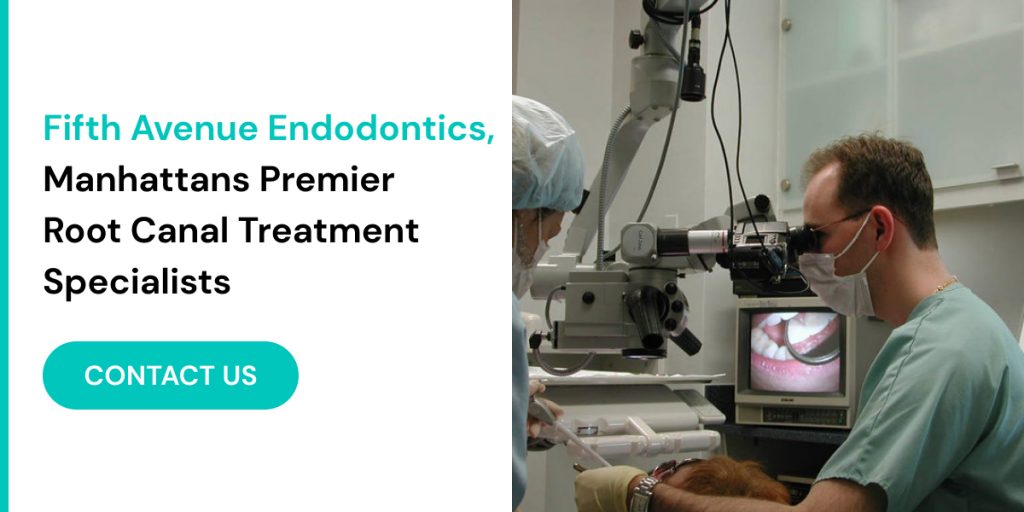When it comes to preserving oral health, the role of endodontics cannot be overstated. Endodontists are specialized dental professionals who focus on diagnosing and treating complex dental issues that affect the inner tissues of the teeth, particularly the root canal system. These specialists are essential in managing a variety of conditions that can compromise dental health and function. One of the lesser-known but highly significant areas where endodontists provide crucial care is in the treatment of oral cysts.
Oral cysts are abnormal, fluid-filled sacs that can develop in the jawbone or soft tissues of the mouth. They often arise due to infections, trauma, or developmental issues and can lead to discomfort, swelling, and damage to the surrounding bone and teeth if left untreated. This is where the expertise of endodontists becomes invaluable. By employing advanced diagnostic techniques and precise treatment methods, endodontists can effectively manage and treat oral cysts, preventing further complications and preserving oral health.
For those seeking specialized care in root canal treatment NYC, particularly for managing oral cysts, Fifth Avenue Endodontics, led by the esteemed Dr. Iofin, stands out as a premier choice. With a reputation for excellence and a commitment to patient care, Fifth Avenue Endodontics offers state-of-the-art treatment in a compassionate and professional environment.
What Are Oral Cysts?
Oral cysts are sac-like structures filled with fluid or semi-solid material that can develop in various parts of the mouth, including the jawbone, gums, and surrounding tissues. These cysts can arise from a variety of causes, such as infections, trauma, or developmental issues. While many oral cysts are benign, their growth can lead to discomfort, displacement of teeth, and even damage to the jawbone.
There are several types of oral cysts, each with unique characteristics and implications for oral health. For instance, radicular cysts are the most common type and typically develop at the root tips of decayed or injured teeth. Dentigerous cysts, on the other hand, form around the crowns of unerupted or developing teeth, most commonly affecting wisdom teeth. Periapical cysts arise due to chronic inflammation following untreated dental infections and are found at the apex of a tooth’s root.
The presence of these cysts often results in noticeable symptoms, including swelling, pain, and sensitivity in the affected area. In some cases, they may be asymptomatic and only discovered during routine dental exams or radiographs. However, if left untreated, oral cysts can expand and cause significant complications, such as infection spread, weakening of the jawbone, and interference with normal tooth function and alignment. Early diagnosis and intervention by a skilled endodontist are crucial to prevent these potential problems and maintain optimal oral health.
Types of Oral Cysts
Several types of oral cysts may require endodontic intervention. Understanding the specifics of these cysts is crucial for effective diagnosis and treatment, which is where the specialized skills of endodontists come into play. Here are some of the most common types of oral cysts:
Radicular Cysts
Radicular cysts, also known as periapical cysts, are the most common type of cyst associated with teeth that have undergone trauma or severe decay. They often develop at the tip of the root and are directly related to the pulp of the tooth. These cysts form as a result of the death of the dental pulp, leading to an inflammatory response at the root’s apex. This inflammation stimulates the epithelial cell rests of Malassez to proliferate and form a cystic structure. If left untreated, radicular cysts can cause significant damage to the surrounding bone and tissues, leading to pain, swelling, and even tooth loss. Endodontic treatment, such as root canal therapy, is often required to remove the source of infection and allow the cyst to heal.
Dentigerous Cysts
Dentigerous cysts typically form around the crown of an unerupted or developing tooth, commonly impacting wisdom teeth. These cysts develop from the accumulation of fluid between the reduced enamel epithelium and the tooth crown. Dentigerous cysts can cause significant displacement of teeth and resorption of the adjacent bone if they grow large. Symptoms may include swelling, pain, and, in some cases, facial asymmetry. Surgical removal of the cyst and the associated tooth is often necessary to prevent further complications. Regular dental check-ups and imaging can help in the early detection of dentigerous cysts, allowing for timely intervention.
Periapical Cysts
Periapical cysts arise from chronic inflammation at the apex of a tooth’s root, usually as a result of long-standing infections. These cysts are often the outcome of untreated dental abscesses or deep cavities that have allowed bacteria to infect the pulp and periapical tissues. Periapical cysts can lead to persistent pain, swelling, and tenderness in the affected area. In severe cases, they can cause damage to the surrounding bone and teeth. Endodontic treatment, such as root canal therapy or apicoectomy (surgical removal of the root tip), is necessary to eliminate the infection and promote healing of the cyst.
Odontogenic Keratocysts
Odontogenic keratocysts are less common but significant due to their aggressive nature and high recurrence rate. These cysts can occur anywhere in the jaw but are most frequently found in the lower jaw’s posterior region. Odontogenic keratocysts originate from the dental lamina and are characterized by their thin, keratinized lining. They can grow to a considerable size before becoming symptomatic, often causing bone expansion and displacement of teeth. Treatment typically involves surgical removal, and careful long-term monitoring is essential to detect any recurrence early.
Lateral Periodontal Cysts
Lateral periodontal cysts are rare developmental cysts that occur along the lateral root surface of vital teeth, usually in the mandibular premolar or canine region. They are typically asymptomatic and discovered incidentally during routine radiographic examinations. These cysts are small, well-defined, and non-expansile. Treatment involves surgical enucleation to remove the cyst while preserving the adjacent teeth.
Glandular Odontogenic Cysts
Glandular odontogenic cysts are rare and can present a diagnostic challenge due to their varied histopathological features. They are most commonly found in the anterior region of the jaws and can cause bone expansion and displacement of adjacent teeth. These cysts require careful surgical management due to their potential for recurrence.
Understanding these types of oral cysts and their specific characteristics helps in the accurate diagnosis and formulation of an effective treatment plan. The specialized training and expertise of endodontists are crucial in managing these conditions, ensuring the best possible outcomes for patients. For those seeking expert care in root canal treatment NYC, particularly for managing oral cysts, Fifth Avenue Endodontics, led by Dr. Iofin, offers comprehensive and state-of-the-art treatment options.
How Endodontists Diagnose Oral Cysts
Diagnosis is the first critical step in the management of oral cysts. Endodontists employ several advanced techniques to accurately identify the presence and type of cyst:
Radiographic Imaging
Radiographs, or X-rays, are a fundamental tool in endodontic diagnostics. They allow endodontists to visualize the internal structure of the teeth and surrounding bone. This imaging can reveal the presence of cysts, their size, and their exact location. In some cases, more advanced imaging techniques like cone-beam computed tomography (CBCT) may be used to provide a 3D view, offering detailed insights that are crucial for planning treatment.
Clinical Examination
A thorough clinical examination is essential to understand the symptoms and physical manifestations of the cyst. Endodontists will assess any swelling, tenderness, or changes in the oral tissues. This examination helps in correlating the radiographic findings with the clinical signs, ensuring a comprehensive diagnostic approach.

Treatment Approaches for Oral Cysts
Once a diagnosis is made, the treatment of oral cysts can take several forms, depending on the type, size, and location of the cyst, as well as the overall health of the patient and the tooth involved.
Non-Surgical Root Canal Therapy
For cysts associated with the roots of the teeth, such as radicular or periapical cysts, non-surgical root canal therapy is often the first line of treatment. This procedure involves the removal of the infected or damaged pulp, followed by cleaning, disinfecting, and sealing the root canals. This approach not only addresses the infection but also helps in reducing the size of the cyst over time. By removing the source of the infection, the body can often heal the cyst naturally.
Surgical Intervention
In cases where non-surgical methods are insufficient, surgical intervention may be required. Endodontic surgery, such as an apicoectomy, involves the removal of the tip of the root along with the cyst. This procedure is typically recommended when the cyst is large, persistent, or causing significant bone loss. Endodontists like Dr. Iofin at Fifth Avenue Endodontics have the expertise to perform these delicate surgeries with precision, ensuring optimal outcomes for patients.
Monitoring and Follow-Up
Regular follow-up appointments are crucial to monitor the healing process and ensure that the cyst is resolving. Radiographic imaging is often repeated during these visits to track the progress and detect any signs of recurrence. Long-term monitoring helps in maintaining oral health and preventing future complications.
The Importance of Specialized Care
Endodontic treatment of oral cysts requires a high level of expertise and specialized training. Endodontists are uniquely equipped to handle these complex cases due to their advanced understanding of the root canal system and related structures. Their skills in both non-surgical and surgical interventions make them the ideal specialists for managing oral cysts effectively.
Why Choose Fifth Avenue Endodontics?
For those seeking root canal treatment NYC, Fifth Avenue Endodontics offers unparalleled care. Dr. Iofin and his team are dedicated to providing comprehensive endodontic services, including the treatment of oral cysts. Their state-of-the-art facility in Manhattan ensures that patients receive the highest standard of care using the latest technologies and techniques.
Preventive Measures and Oral Health Maintenance
While treatment is essential for managing existing cysts, preventive care plays a vital role in maintaining oral health and preventing the development of new cysts.
Good Oral Hygiene Practices
Maintaining good oral hygiene is the first step in preventing infections that can lead to cyst formation. Regular brushing, flossing, and using an antiseptic mouthwash can help keep harmful bacteria at bay.
Regular Dental Check-Ups
Routine dental check-ups are crucial for early detection of potential issues. Regular visits to an endodontist or dentist can help in identifying problems before they develop into more serious conditions, such as cysts.
Addressing Dental Trauma Promptly
In cases of dental trauma, prompt and appropriate treatment can prevent the formation of cysts. Seeking immediate care after an injury can minimize the risk of complications.

Conclusion
The role of endodontics in treating oral cysts is integral to maintaining oral health. With their specialized training and expertise, endodontists are well-equipped to diagnose and manage these complex conditions effectively. For those in need of expert root canal treatment NYC, Fifth Avenue Endodontics, led by Dr. Iofin, offers comprehensive care that addresses both the symptoms and underlying causes of oral cysts. By choosing specialized care, patients can ensure the best possible outcomes for their oral health.
Understanding the intricacies of oral cysts and the endodontic approaches to treating them highlights the importance of seeking professional care. With the right diagnosis, treatment, and follow-up, endodontists can effectively manage these conditions, ensuring patients maintain healthy and functional teeth for a lifetime.

